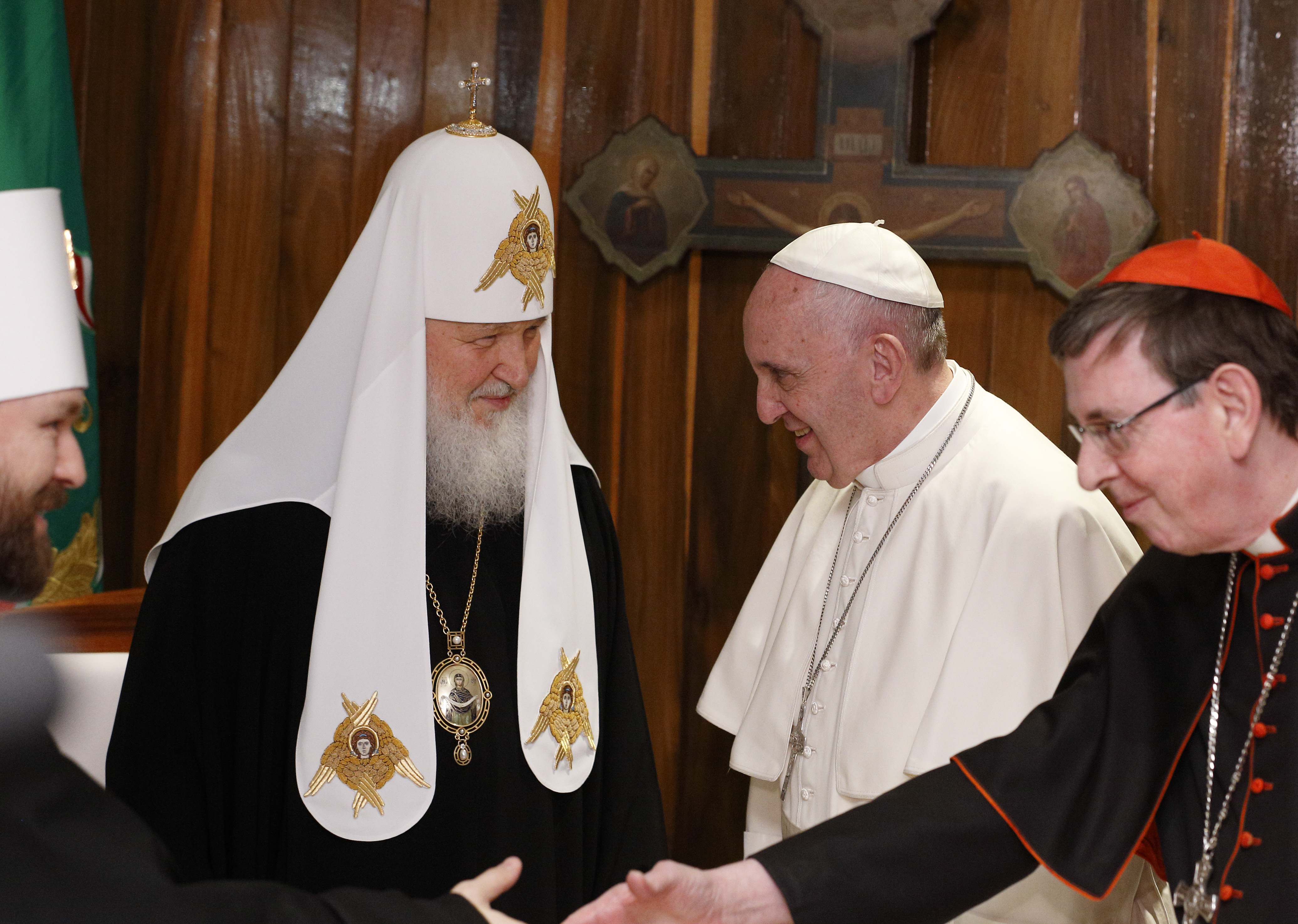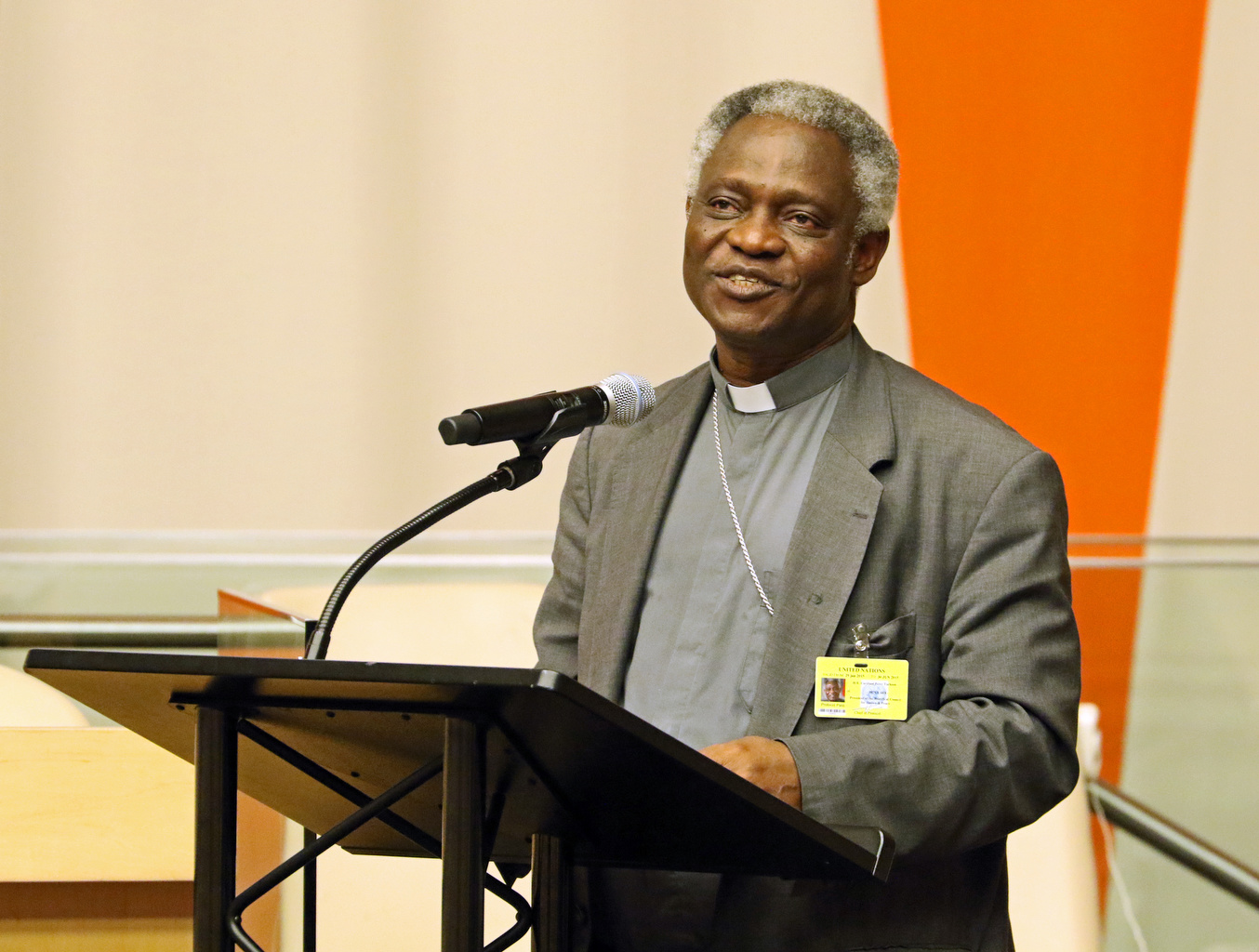A Vatican cardinal has said that the anti-migrant sentiments which may have stoked the 'Brexit' vote were based on fears that newcomers are a threat rather than a resource for a country.
Cardinal Peter Turkson, Pope Francis’ point man on social action, quoted the medieval English poet John Donne’ when arguing that migration should be managed correctly to ensure it is not a “threat” to anyone.
“Presently that is a big sense, that the movement of people is a threat. That is the impression in Poland, that is the impression in Hungary, that is the impression in Britain that the movement and arrival of people constitutes a threat,” he told reporters in the Vatican today (18 December).
“But...we can find ways of managing [migration] so that what appears to be a threat might actually be a resource. Maybe something that can benefit the country, because as we believe and say: no man is an Island.”
The 70-year-old Ghanian prelate spoke in answer to a question from The Tablet on the argument that fears surrounding migration may have fuelled Britain's vote to leave the European Union, at a press conference to launch Pope Francis’ message to mark the World Day of Peace on 1 January 2019.
In his message, the Pope writes that political discourse which tends to “blame every evil on migrants and to deprive the poor of hope are unacceptable.” Francis writes that “sadly” nationalism is on the rise “due to a climate of mistrust rooted in the fear of others or of strangers, or anxiety about one’s personal security.”
In 2016 the Pope, who has made care of migrants a central concern of his papacy, said the British referendum decision to leave the European Union was the "will expressed by the people" but left a "great responsibility" for EU leaders to ensure the "peaceful co-existence" in Europe. In the run-up to the referendum, Archbishop Paul Gallagher, the Holy See Foreign Minister and who is British, argued for Britain to remain part of the EU.
Cardinal Turkson, Prefect of the Dicastery for Promoting Integral Human Development, stressed that Britain was "not the only country” to make a political decision based on “fear” which he argued was widespread in Europe at the moment.
“The Brexit tendencies are not limited to England,” he said. “Every country in Europe has a reason to express some kind of anxiety about migrants, and unfortunately so - I say unfortunately because the link between migration and religion, Islam, is unfortunate.”
The cardinal argued that incidents such as the recent attack on a Christmas market in Strasbourg by a Muslim extremist are being seized on and are fuelling “the anti-migration sentiment, and we would wish that would cease.”
The Holy See, he explained, had made a “very useful contribution” to the recent United Nations Global Compact for Safe, Orderly and Regular Migration, a non-binding agreement signed by 164 countries in Marrakesh.
Cardinal Turkson said that much of a 20-point blueprint on welcoming new arrivals produced by the migrants' section of his department had been adopted by the UN agreement.
Cardinal Pietro Parolin, Holy See Secretary of State, took part in the 10 and 11 December meeting in Morocco and the Holy See has supported the deal which seeks to find a coordinated response to the migrants' crisis. Italy, however, which is led by a coalition of populist and far-right parties, was not a signatory to the compact.
Elsewhere in his message, the Pope wrote that wielding political power should be an act of charity and that politicians must avoid “vices” including corruption, xenophobia, racism, “dishonest gain” and a lack of care for the environment.
The 82-year-old Jesuit Pontiff proposed that the “Beatitudes of the Politician” written by the late Vietnamese Cardinal François-Xavier Nguy?n Vãn Thu?n, be adopted as a guide.
"Blessed be the politician with a lofty sense and deep understanding of his role.
Blessed be the politician who personally exemplifies credibility.
Blessed be the politician who works for the common good and not his or her own interest.
Blessed be the politician who remains consistent.
Blessed be the politician who works for unity.
Blessed be the politician who works to accomplish radical change.
Blessed be the politician who is capable of listening.
Blessed be the politician who is without fear."



 Loading ...
Loading ...